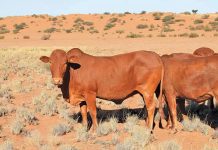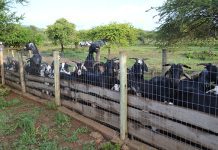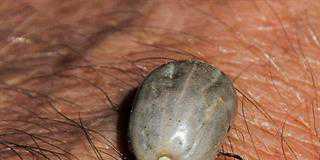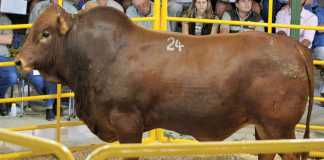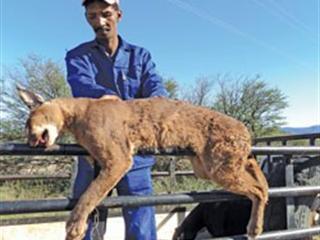
Stock theft is the rural equivalent of vehicle theft and hijacking in cities, with one major difference – livestock can’t be insured.
Officially, stock theft losses amount to about R600 million a year, which is about half the value of the loss to predation. Predators are estimated to account for about 6 000 animals a day, annually, while stock thieves take up to 1 million cattle, sheep and goats a year.
The stock theft problem is under-estimated and many cases of stock theft go unreported, especially in the communal farming areas. This means that figures could be higher than police statistics suggest. Losses caused by stock theft and predation have forced farmers in many areas to abandon small stock farming and switch to cattle or game. Thieves can herd cattle, but they cannot be as easily loaded as sheep. Game, of course, can’t be caught or herded, but can be poached.
Economic impact
Dr Michiel Scholtz of the ARC Animal Production Institute has studied stock theft and its impact on resource-poor farmers. He says it’s often more serious than for commercial farmers. They own fewer animals and often don’t have the money to replace them. On the other hand, the loss of a hundred head of stock at a time can leave commercial farmers feeling equally powerless and dejected.
Dr Scholtz says the national sheep flock currently stands at about 25 million, with 22 million sheep on private land and 3 million on communal land. This is after figures dropped by about 3 million over a 10-year period, mainly due to stock theft and animal predation.
Up to you
It is difficult for police to catch and convict a professional stock thief. Stock thieves know the lay of the land and the movements of farmers and their staff. They can operate strategically, minimising the danger of being caught. Police stock theft units are hopelessly under-staffed and don’t always get the necessary co-operation from local police stations. Despite difficult conditions they put in long hours and work courageously against daunting odds.
But it is largely up to stock farmers to do what they can to control losses and outwit and out-manoeuvre thieves. Constructive partnerships with neighbours and police officers can contribute significantly to success in this battle.
What to do
If large-scale stock theft hasn’t yet taken hold in your district, you’re lucky. Plan to keep it that way. Show prospective thieves you’re vigilant. That means patrolling regularly, employing security guards, developing a reliable informer network and fostering a good relationship with the police.
Once sophisticated syndicates have infiltrated a district, emergency measures must be taken – and these cost money, effort and time. Aside from the economic cost of stock theft, farmers are forced to move animals away from veld or pasture bordering public roads or towns. If these vulnerable parts of a farm can’t be secured by means of electric fencing or guards, the only way to prevent losses is to move the animals every night.
Ask your staff to help keep potential thieves off your property. Warn them of the dangers of temptation. Often drugs or alcohol are offered in return for fresh meat. Make sure your staff know that accepting these bribes is short-sighted. Even if they’re not caught, severe stock losses could cause them to lose their jobs. That’s a heavy price to pay.
It is a serious challenge for farmers to farm during the day and to police their flocks at night. If a reservist police force is active in your district, there are definite benefits to roadblocks which effectively control crime. Sometimes this work can be dangerous with farmers intimidated and threatened, preventing them from helping the stock theft unit.
It costs the state millions to investigate and follow up stock theft. Money is lost on every stolen animal that’s not formally marketed. The farmer suffers production losses and the community suffers job losses. Finally – until affordable genetic and electronic identification systems are available – tattoo or brand your animals according to the law and count them as regularly as you can.
Contact the police’s national Stock Theft Unit on 012 393 1196 or email [email protected]


